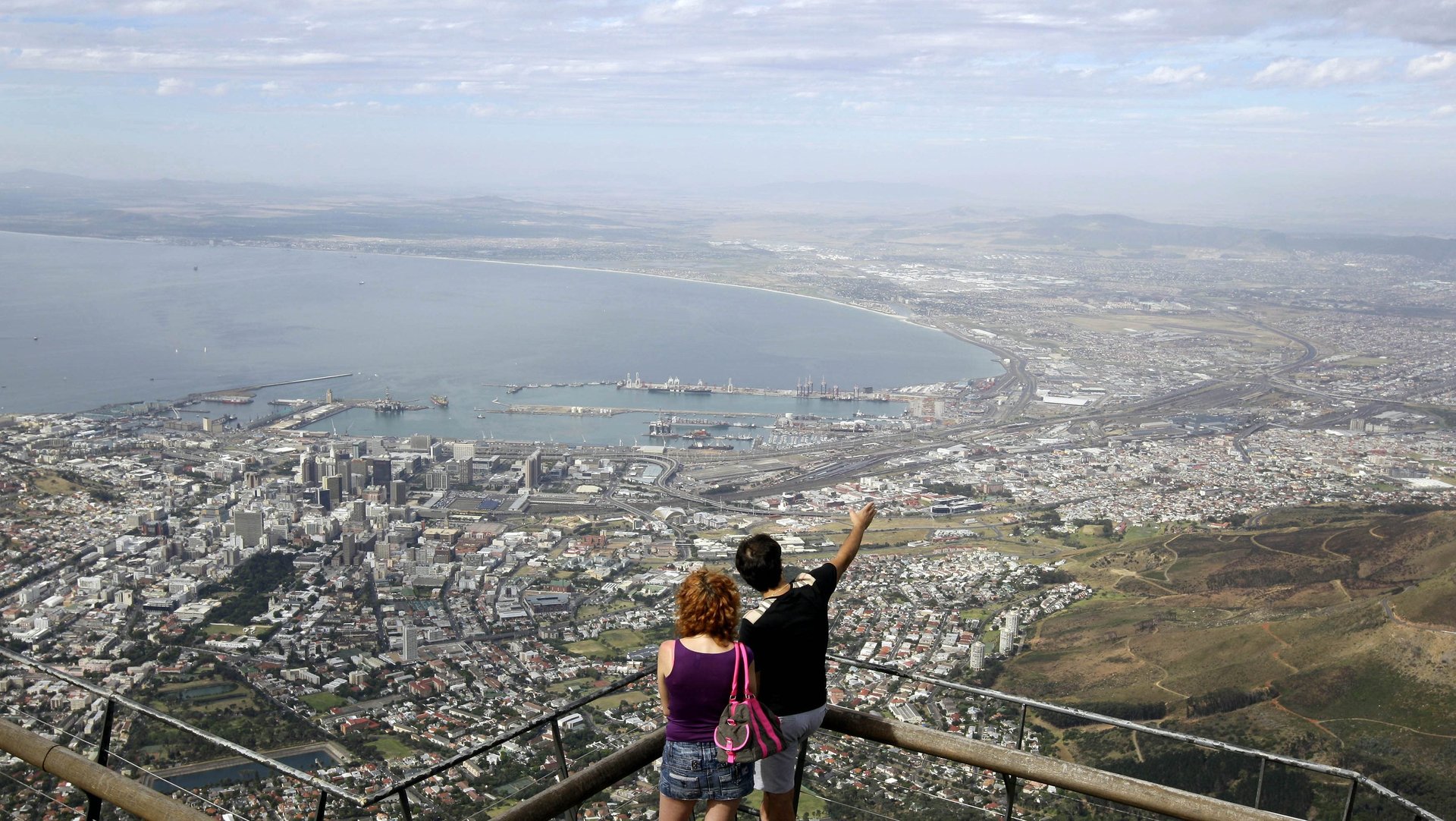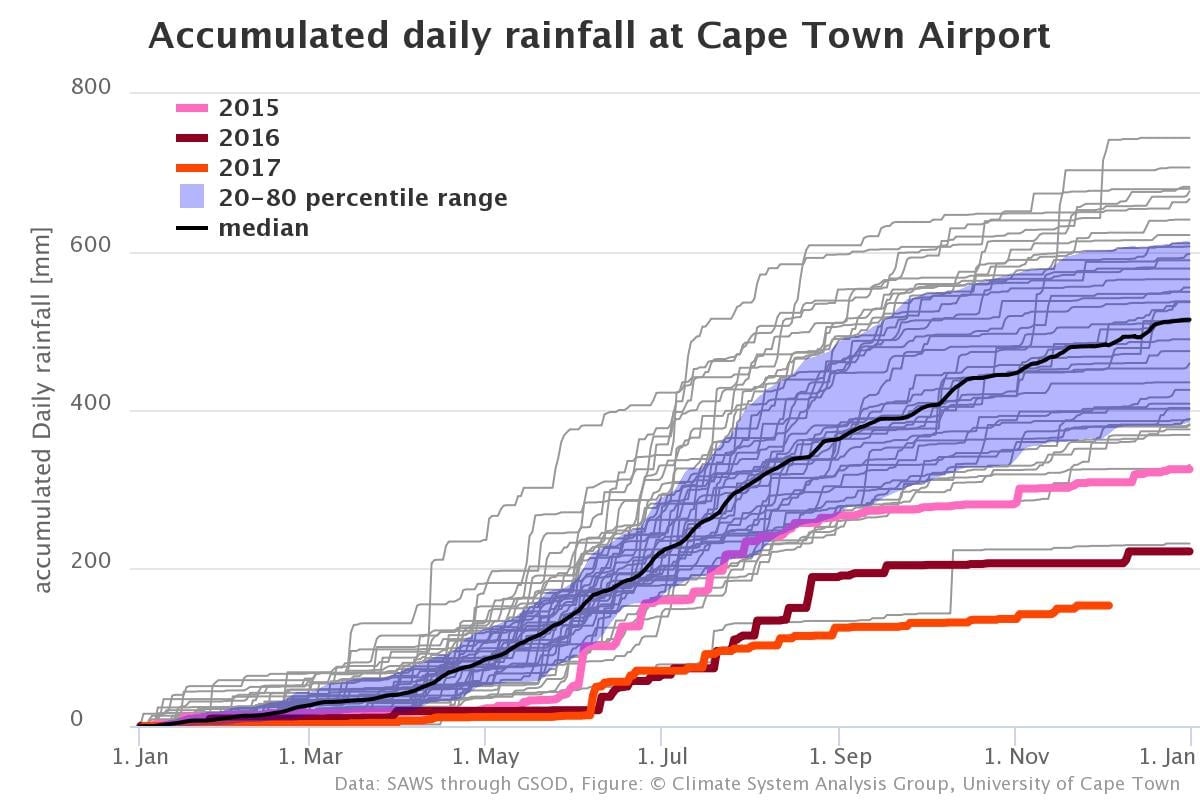Africa’s favorite tourist city is about to run out of water
Visitors entering the city of Cape Town this year will be greeted with warning signs that veer between gentle but firm and positively apocalyptic. The city is in the grips of the worst water crisis in recent memory, complete with a countdown clock to Day Zero.


Visitors entering the city of Cape Town this year will be greeted with warning signs that veer between gentle but firm and positively apocalyptic. The city is in the grips of the worst water crisis in recent memory, complete with a countdown clock to Day Zero.
May 20, 2018 is “the day the taps will be turned off,” according to the city’s own calculations. Day Zero has moved several times, from March to May 13 after initial consumption efforts paid off. The additional week in May was thanks to some unexpected summer rain.
Last year, Cape Town was Africa’s second most visited city after Johannesburg, which is a major regional travel hub as well as South Africa’s commercial capital. But in terms of actual long-haul visitors Cape Town had the higher share with visitors from the United Kingdom, the US and Germany leading its numbers. Cape Town is already Africa’s most popular Airbnb destination city.
The city, which is renown for its coastal beauty, has many popular waterside tourist spots which could be impacted by the water shortage problems.
The language around Cape Town’s water crisis has successfully sounded the alarm in this usually laid-back city. “Day Zero” invokes a doomsday image of long queues of parched Capetonians waiting for a daily ration of water, with the city’s tourist sites reduced to arid terrain.
It’s the kind of public response to climate change that evokes panic instead of practical responses to what could be the new normal. Studies have shown that spreading fear about rising sea levels or spreading deserts makes most people play possum—or go into complete denial—instead of preparing for change.
The city is now implementing “level five water restrictions,” which since September has banned the use of municipal water for non-essential purposes. For homes it means reducing water consumption to 87 liters per person per day.
Commercial water use must be reduced by 20%, while the approximately two million tourists that will visit the city over the festive season are being encouraged to “save like a local.” Mayor Patricia de Lille personally visited the homes of water wasters on Sunday, Dec. 3, to install water management meters. Earlier this year, the mayor’s office named and shamed the top 100 offenders.
Treating Day Zero as in inevitability is not only fear-mongering, it negates the gains made in water conservation through initiatives like desalination plants and aquifers (there’s an online dashboard monitoring progress on these projects, too). The water collection projects currently underway should be supply 240-million extra liters of water, which is enough to get Cape Town through the summer and beyond the shifting target of Day Zero, according to David Olivier, a researcher at the University of the Witwatersrand.

There also seems to be not enough data to support the idea that the city will have to turn off its taps. It’s uncertain how long this drought will last and if it will bring with it a new weather pattern for the Western Cape, according to Piotr Wolski at the Climate System Analysis Group. Scientists couldn’t decide on a long-term climate modeling system for the region, publishing everyone’s predictions and coming up with a somewhat ambiguous conclusion.
“The Western Cape needs to consider the full range of possibilities, which comprise that the 2017 winter season may be drier than normal…or normal…or wetter than normal,” the the 2017 Western Cape Winter Rainfall Outlook Summit concluded.